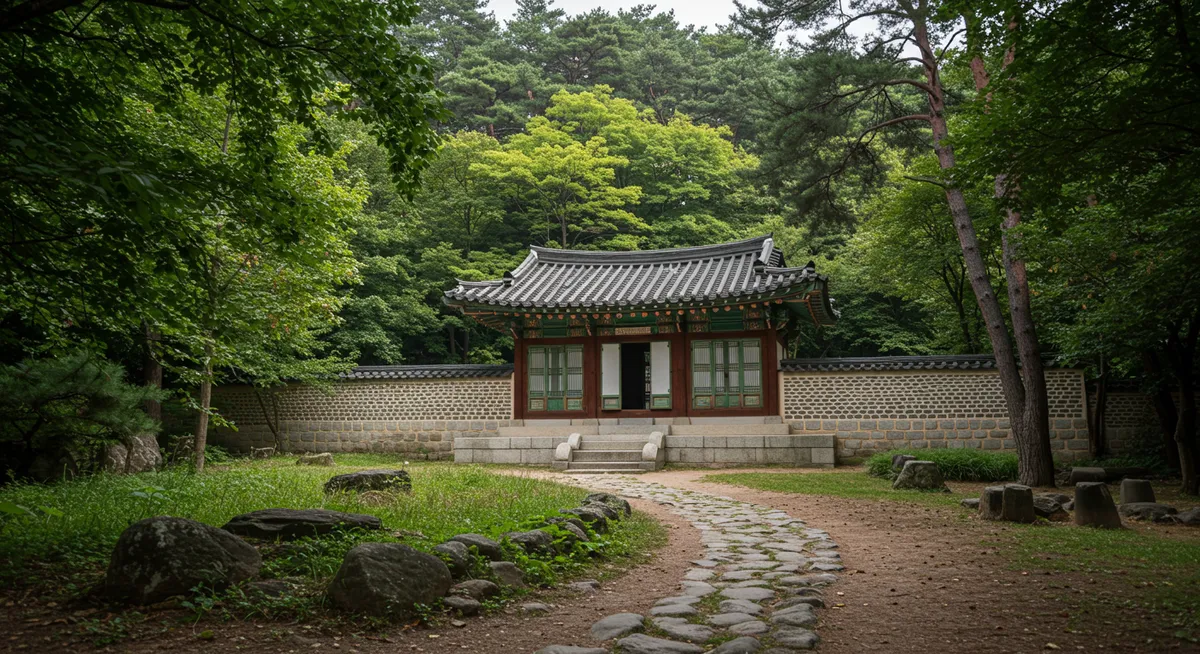
Ojukheon House: History & Visitor Tips in Gangneung
Table of Contents
Want to find the best travel deals for this destination? Chat with our travel hacking specialist!
Get Travel HacksCategory: ojukheon-house-history-and-visitor-tips
Unveiling Ojukheon House: A Journey Through Time
Having explored countless historical sites across Asia, I can confidently say that Ojukheon House in Gangneung, South Korea, stands out as a profound cultural treasure. My personal journey through its ancient halls offered a deep dive into Korea's rich heritage. This guide is crafted from my first-hand experiences and extensive research, ensuring you have the best possible visit. From its fascinating past to practical tips for travelers, we'll cover everything you need to know about this remarkable destination. For more comprehensive travel insights into the region, consider visiting Plan Vacation Asia.
The Rich History of Ojukheon House
Stepping into Ojukheon House is like traveling back to the Joseon Dynasty, specifically to the 16th century. This venerable site is renowned as the birthplace of two of Korea's most influential historical figures: Shin Saimdang, a revered artist and calligrapher, and her son, Yi I (Yulgok), a prominent Confucian scholar. The profound cultural significance of this Ojukheon House history makes it a must-visit for anyone interested in Korean heritage. It truly feels like walking through pages of a living history book, offering a tangible connection to the past. This ancestral home, nestled among ancient black bamboo groves, has been meticulously preserved, allowing visitors to glimpse the lives of these esteemed individuals who shaped Korean thought and art.
Architectural Highlights and Significance
The architecture of Ojukheon House exemplifies classic Joseon-era residential design, featuring the distinctive 'Hanok' style. Comprising several traditional buildings, including the main living quarters and a shrine dedicated to Yi I, the complex provides insight into historical Korean life. The simplicity and harmony of the structures, built with natural materials, reflect the Confucian principles that guided their construction. From my own observations, the surrounding black bamboo (Ojuk) from which the house gets its name, adds a unique, serene atmosphere, contributing to its designation as a crucial heritage site. For a broader overview of exploring this captivating region, check out our comprehensive Gangneung travel guide.
Essential Visitor Information & Practical Tips
Planning your visit to Ojukheon House requires some key information to ensure a smooth experience. The complex is generally open year-round, with specific hours varying by season, so it's wise to check their official website before you go. Admission fees are quite reasonable, making it accessible for all budgets. To truly make the most of your time and embrace the tranquil ambiance, I highly recommend visiting early in the morning or later in the afternoon to avoid peak crowds. If you're wondering about the ideal time to travel to the area, consult our guide on the best time to visit Gangneung. Additionally, learning how to get to Gangneung from Seoul will help with your travel plans.
Exploring the Surrounding Area of Ojukheon
While Ojukheon House is undoubtedly the main attraction, the surrounding complex and nearby areas offer more to discover. Adjacent to Ojukheon is the Gangneung City Museum, which complements your historical understanding with a broader collection of local artifacts and cultural exhibitions. The expansive grounds are beautifully landscaped, providing pleasant walking paths perfect for a leisurely stroll. You can also explore the various smaller halls and shrines, each with its own story. As a seasoned traveler, I always look for ways to enhance my visit, and exploring the wider cultural complex around Ojukheon allows for a fuller appreciation of the site. Don't forget to explore other top things to do in Gangneung while you're there.
Frequently Asked Questions
What is Ojukheon House known for?
How much time should I allocate for visiting Ojukheon?
Is Ojukheon House suitable for families with children?
Ojukheon House stands as a testament to Korea's enduring legacy, offering a captivating blend of significant Ojukheon House history and serene beauty. From its ancient black bamboo groves to the preserved traditional Hanok structures, every corner tells a story of renowned scholars and artists. By utilizing these visitor tips, you are well-equipped to experience this cultural gem to its fullest. Plan your journey thoughtfully, absorb the tranquil atmosphere, and discover the profound impact of this site on Korean culture. Your visit will undoubtedly be a memorable highlight of your Gangneung adventure.